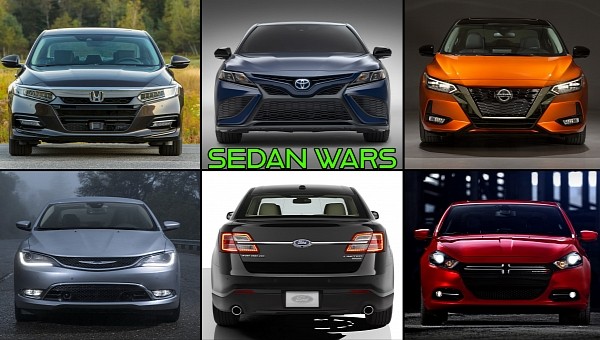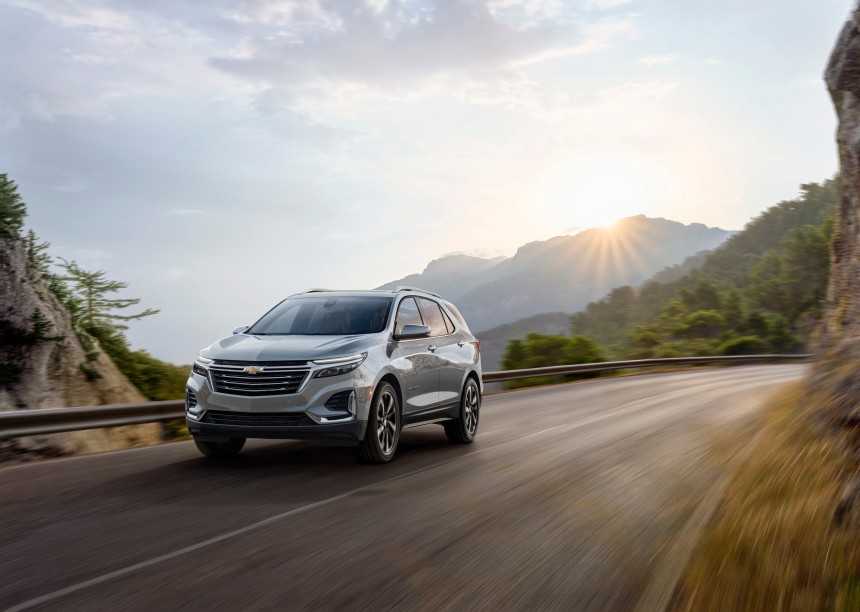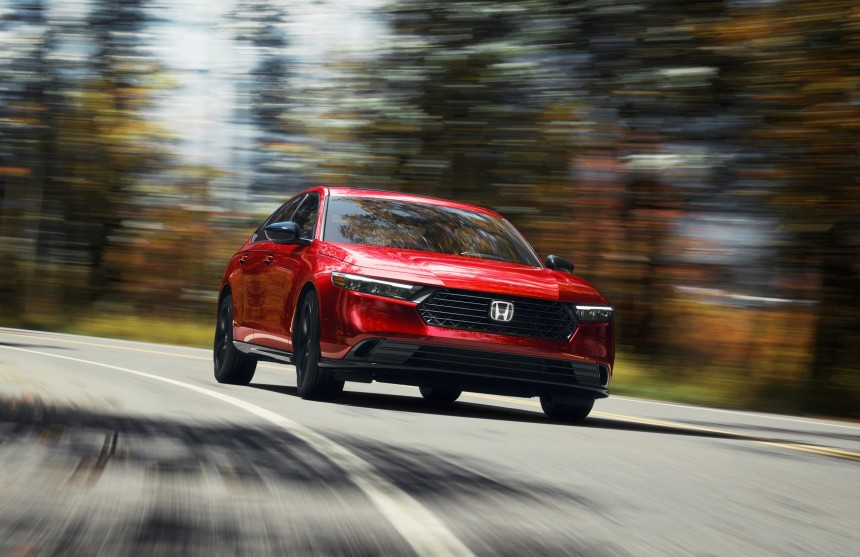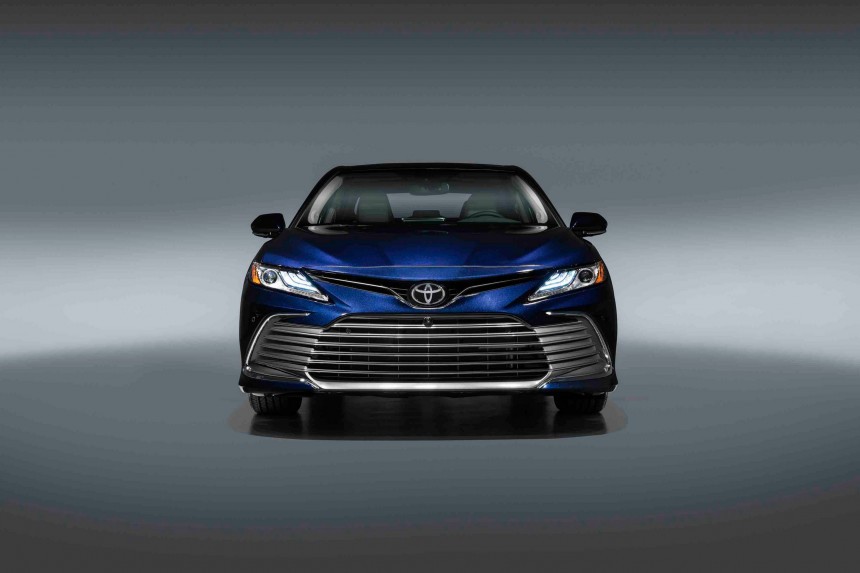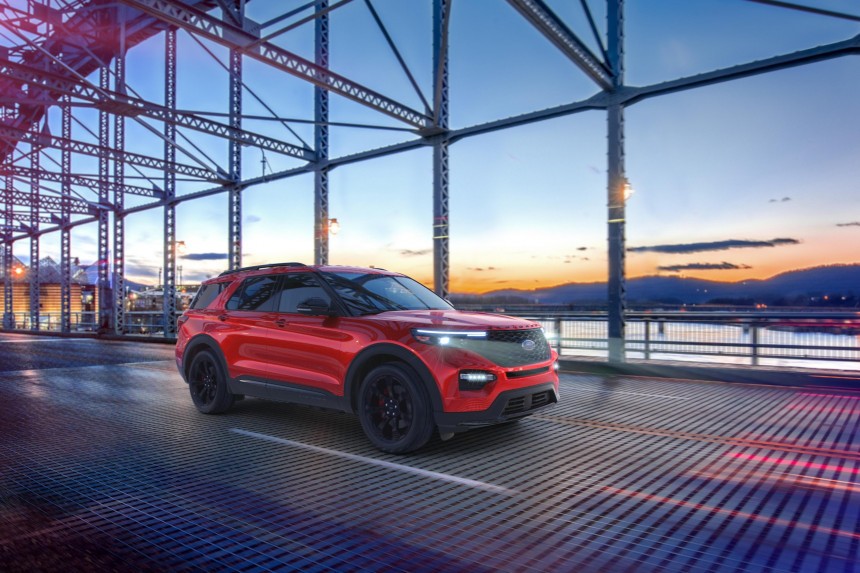More than anything, this is a discussion of a continuing trend, as well as why all this works today. The American sedan used to be a dealer staple. As early as the late 80s and early 90s, domestic brands competed with imports for dominance in this then hotly-contested segment. Names like the Ford Taurus and Chevy Impala were household staples. But as the SUV rose in popularity, the idea of domestic sedans declined in turn.
What this did was leave foreign brands free to capitalize on what was left. Initially, this may not seem like much. But Toyota and the Camry are the perfect example. Last year, Toyota sold nearly 300,000 of these things. It is the best-selling car in America. In contrast, Ford moved 207,000 Explorers.
Domestic brands, for lack of a better phrase, screwed up - at least if you ask me and a few other members of our staff. The segment is small, yes, but the numbers are relatively steady for those still in it. Toyota sees steady sales of the Camry, as does Honda with the Accord. Sedan buyers like these cars because they are, well, sedans. At this point, you probably won’t turn these consumers into SUV and crossover buyers. That ship has sailed.
Before we get into how all this happened, and why some brands have been left to flourish in a niche segment while others have exited it entirely, there’s some semantics to clear up. “Import” brands aren’t really imports anymore. Instead, the term has largely become a way to identify brands that aren’t inherently American (Chevy, Ford), and are instead foreign (Toyota, Hyundai, Honda). The Civic is made in Ohio. Hyundai is opening or has opened plants here as well. Toyota has been making the Camry here for decades. Globalization, baby.
In fairness, “import” brands are doing this too. Toyota’s 3rd generation 4Runner is one of its most popular models yet, and Honda had just revolutionized the CUV segment with the CR-V.
But there is a key difference. As sedans like the Impala are killed off by American companies, Japanese and foreign brands instead, hone their sedan offerings. This is the point at which we start to see a turn in the sedan market. Yes, it is shrinking overall, but import brands like Honda are still offering them. There’s an argument to be made that the 2008 recession exacerbated this in some ways.
Yes, SUVs are expensive, and sedans can be cheaper. But as I’ve said, what really killed the American sedan was the American SUV. Theories aside, the bottom line is that while the American sedan died, the import sedan only got better.
In the end, the evacuation of domestic brands left a gaping hole in the market. The Taurus, the Chrysler 200, the Fusion - all of these are dead with no viable American replacement save (maybe) for the Malibu. To boot, the Toyota Camry starts at $27,315, comes with some of the best standard safety features on the market, and fits your whole family. The Accord and Elantra offer similar things.
Even the runt of the litter, the Altima, starts at $25,490 and has seen some serious improvement in the past several years. The combination of reasonable cargo capacity, pricing, and diversity of trims has presented a real counter argument to the crossover or SUV. More specifically, to the American crossover or SUV.
But the ones that are left? I don’t see them going anywhere. Now, there are decades of brand loyalty baked into all corners of the market. Sedan buyers just don’t like to buy domestic anymore. Brands like Honda and Toyota have had too much time to refine their respective formulas. There’s an Accord or Camry for everyone. Unfortunately, the same can't be said about American sedans.
Domestic brands, for lack of a better phrase, screwed up - at least if you ask me and a few other members of our staff. The segment is small, yes, but the numbers are relatively steady for those still in it. Toyota sees steady sales of the Camry, as does Honda with the Accord. Sedan buyers like these cars because they are, well, sedans. At this point, you probably won’t turn these consumers into SUV and crossover buyers. That ship has sailed.
Before we get into how all this happened, and why some brands have been left to flourish in a niche segment while others have exited it entirely, there’s some semantics to clear up. “Import” brands aren’t really imports anymore. Instead, the term has largely become a way to identify brands that aren’t inherently American (Chevy, Ford), and are instead foreign (Toyota, Hyundai, Honda). The Civic is made in Ohio. Hyundai is opening or has opened plants here as well. Toyota has been making the Camry here for decades. Globalization, baby.
Who killed the sedan?
Most of this kicks off in the early 2000s. Post 9/11, cars are getting bigger as safety standards and consumer appetites evolve. Domestic brands like Ford, Chevy, and others still have sedans, but their lineups and their plans being laid for future models are leaning more into the sales that SUVs are bringing in.In fairness, “import” brands are doing this too. Toyota’s 3rd generation 4Runner is one of its most popular models yet, and Honda had just revolutionized the CUV segment with the CR-V.
But there is a key difference. As sedans like the Impala are killed off by American companies, Japanese and foreign brands instead, hone their sedan offerings. This is the point at which we start to see a turn in the sedan market. Yes, it is shrinking overall, but import brands like Honda are still offering them. There’s an argument to be made that the 2008 recession exacerbated this in some ways.
Yes, SUVs are expensive, and sedans can be cheaper. But as I’ve said, what really killed the American sedan was the American SUV. Theories aside, the bottom line is that while the American sedan died, the import sedan only got better.
What’s so appealing about import sedans?
Now, this is not to say that the sedans that are left have survived just because they are imports or because they are simply the last ones standing. The Camry is excellent. But the Nissan Altima lags far behind it. Look at things from a sales perspective, and the segment is still competitive. Honda sold 154,000 Accords by December of last year. Chevy sold 115,000 Malibu sedans. Chevy still sells sedans, but not anywhere near the numbers the likes of Honda and Toyota are pulling.In the end, the evacuation of domestic brands left a gaping hole in the market. The Taurus, the Chrysler 200, the Fusion - all of these are dead with no viable American replacement save (maybe) for the Malibu. To boot, the Toyota Camry starts at $27,315, comes with some of the best standard safety features on the market, and fits your whole family. The Accord and Elantra offer similar things.
Even the runt of the litter, the Altima, starts at $25,490 and has seen some serious improvement in the past several years. The combination of reasonable cargo capacity, pricing, and diversity of trims has presented a real counter argument to the crossover or SUV. More specifically, to the American crossover or SUV.
Do domestically made sedans have a place?
While these reasonably priced import sedans have control of the market for now, it raises the above question. To be honest, it’s tough to see a world in which brands like Ford, GMC, Chevy, or other red white, and blue names have a reason to come back to the sedan in its basic, budget-friendly form. Consumers speak with their wallets, and suddenly waking up with more sedans than what's already out there isn’t a likely scenario given the popularity of SUVs.But the ones that are left? I don’t see them going anywhere. Now, there are decades of brand loyalty baked into all corners of the market. Sedan buyers just don’t like to buy domestic anymore. Brands like Honda and Toyota have had too much time to refine their respective formulas. There’s an Accord or Camry for everyone. Unfortunately, the same can't be said about American sedans.
